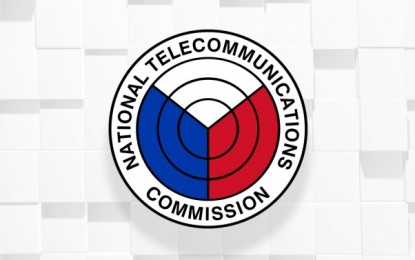
MANILA – The National Telecommunication Commission (NTC) is coordinating with the National Privacy Commission (NPC) and other relevant parties to stop and track the source of text scams, especially those that contain the names of their receivers.
In a Laging Handa briefing on Friday, NTC consultant Edgardo Cabarios said the NPC is leading the investigation, with the NTC coordinating with telecommunications companies (telcos).
“Mayroon pong nag-leak ng information kasi bakit iyong telephone number ay mayroong pangalan? Kung telephone number lang pupuwede pong sabihin natin na random, pero ito ay may pangalan (There has been an information leak because why does the mobile number come with a name? If it’s just a number we can say it was random, but there’s a name),” Cabarios said.
Such text scams contain the name of the person the message was sent to and a link that when clicked, would result in more personal information being lost.
These pieces of personal information may be used by cybercriminals to access a person’s bank account or other sensitive information.
One possible source of the leak, he said, is contact tracing information gathered by different establishments during the height of the coronavirus pandemic.
However, he said the NPC has looked into such a possibility and found it unlikely that such information came from contact tracing data.
“But posibilidad ho iyon kasi naroon iyong information, naroon iyong telephone number, naroon iyong pangalan mo (But it is a possibility because the information is there, the telephone number, the name is there),” he said.
In response, he said the NTC and other relevant government agencies such as the Department of Information and Technology (DICT) are working on preventing further losses by informing the public and prosecuting those found involved.
“Para ma-prevent po iyan ay iyong advisories na ginagawa po ng Komisyon para mabawasan o talagang mawala na po iyong mga maloloko (To prevent these, there are advisories made by the NTC to reduce or zero out the number of victims),” he said.
The Cybercrime Investigation Coordinating Center (CICC) of the DICT, he said, is also working with the NPC, the Department of Trade and Industry, law enforcement agencies, and other relevant parties to maintain a repository of text scams and their victims to aid in investigations.
On the other hand, he said telcos continue to block suspected messages and calls from scammers and blacklist their mobile numbers.
“Ang problema lang ho kasi is madaling bumili ng SIM (subscriber identity module) card, prepaid SIM card (The problem is it’s very easy to buy a prepaid SIM card),” he said.
He said that legislating the registration of SIM cards would not only help reduce such scams but also help trace cybercriminals.
“Baka gumamit ng fake na ID. Okay lang po iyon kasi mayroon pagsisimulan ng imbestigasyon ang ating mga law enforcement agencies (They may use a fake ID. That’s fine because we’ll have something to start with in regards to the investigation of law enforcement agencies),” he said.
He called on the public to help stop such scams by never responding to messages that originated from unknown or questionable numbers, especially those asking for sensitive personal information or those offering rewards or prizes.
On Thursday, the NPC announced an investigation into the proliferation of unsolicited text scams from unknown numbers, with some containing the names of their receivers.
On the same day, the privacy body met with telecommunications providers where they committed to intensifying their technological and security safeguards against such scams. (PNA)
